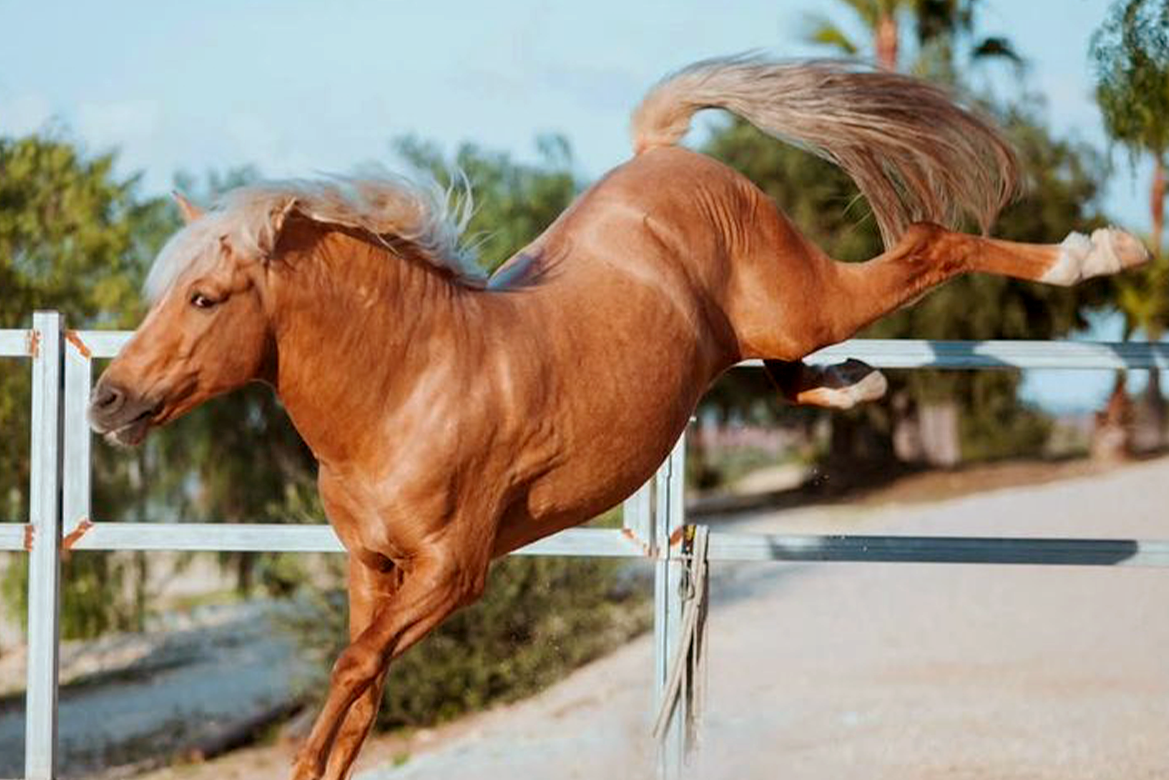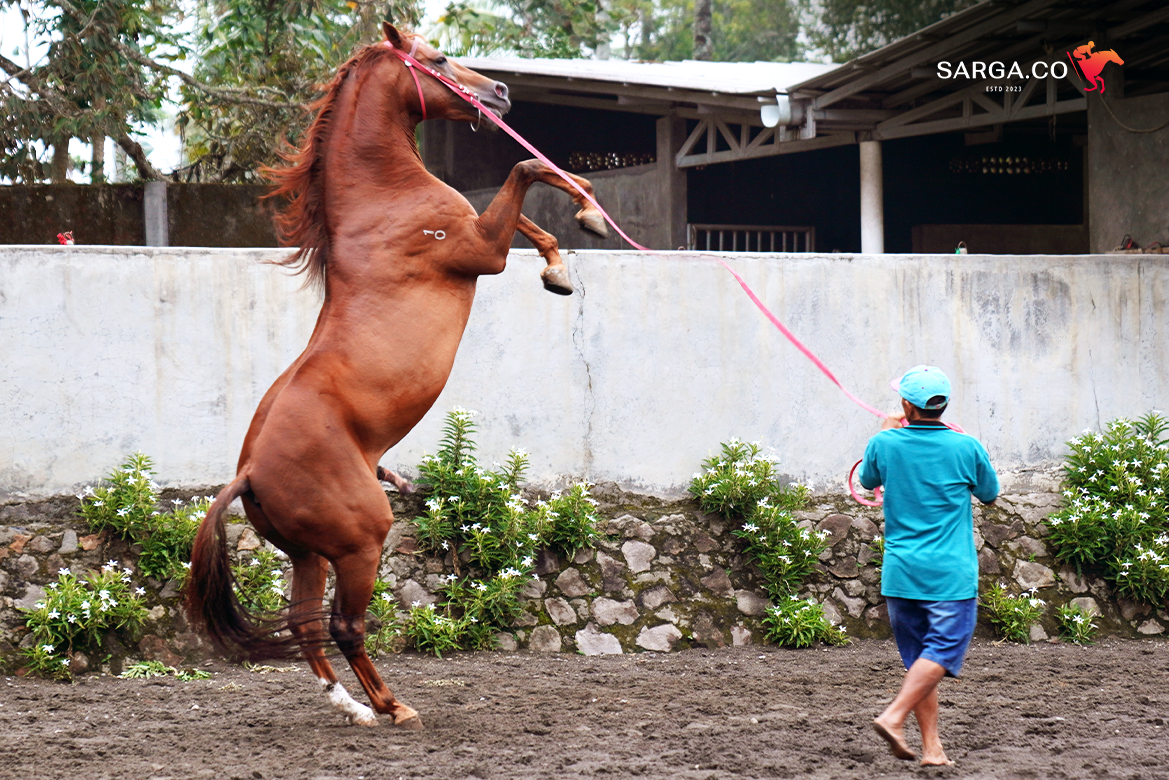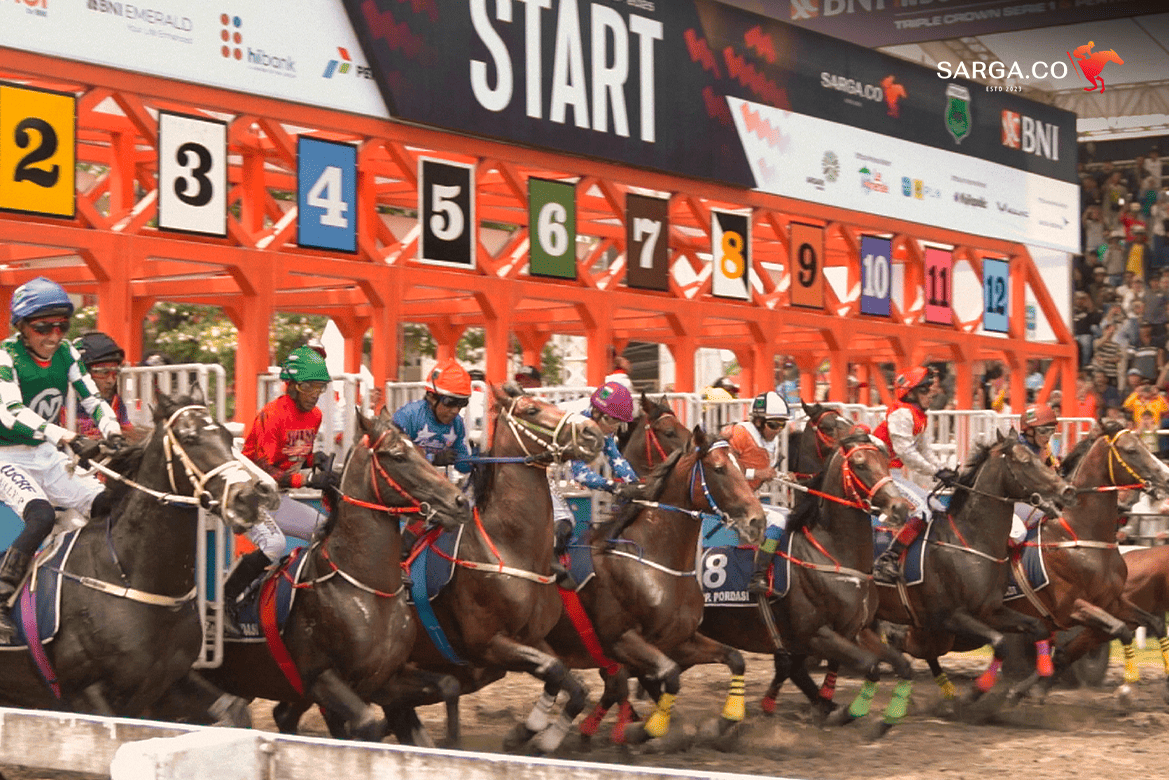SARGA.CO—Horses often appear tame and graceful under human care. However, few realize that these animals possess one of the most lethal kicks in the world.
A single horse kick can cause severe injuries and even lead to death. The reflex behind a horse’s kick is extremely fast—it can happen in just 0.3 seconds—and comes from the hind legs, which are powered by large muscles and strong bone structures.
How powerful is a horse kick?
According to an article from TheHorse.com written by Katie Navarra titled “Help, My Horse Got Kicked!”, kicking is a natural part of horse behavior. An adult horse weighing over 1,000 pounds is capable of delivering a kick strong enough to cause broken bones or internal injuries.
While the exact force of a horse’s kick is difficult to verify, it should never be underestimated. A horse kick can be fatal depending on the part of the body it strikes and the physical condition of the person being kicked.
Why do horses kick?

The horse is running
Source: Freepik
Horses are herbivores with strong survival instincts. When they feel threatened or startled, their first instinct is to flee. However, if cornered and unable to escape, they will kick in self-defense.
The article “Why Do Horses Kick? (And What To Do About It)” by Jelena Woehr on PetMD explains that even well-trained horses can instinctively kick if startled by a person standing behind them.
Additionally, horses may kick to defend their food. Depending on their personality, health conditions like stomach pain, or past traumatic experiences, they can be very protective of their resources.
In certain situations, a horse may kick its own body—especially the belly—due to colic (abdominal pain), itchiness, internal wounds, or discomfort caused by poorly fitting gear. Insect attacks, such as from flies, can also trigger kicking, often accompanied by stomping or tail swishing.
The impact of a horse kick
A horse kick can cause broken bones, particularly in the chest, arms, and ribs. If it hits the head, the consequences can be even more severe, such as concussions or traumatic brain injury.
Kicks to the abdomen or back can result in internal bleeding and organ damage. Even when bones are not broken, the kick can still cause severe bruising and painful open wounds.
A study in the International Journal of Surgery Case Reports noted that victims of horse kicks often require intensive medical care and close observation due to the serious complications that may arise. Moreover, some victims may suffer long-term psychological trauma, including fear of being near horses again.
Case study
In 2019, detik.com reported a case involving a male tourist kicked by a wild horse on Assateague Island, USA. When he tried to pet the horse, the animal felt threatened and kicked him directly in the groin.
Although the report did not elaborate on the victim’s condition afterward, the incident demonstrates that even seemingly friendly interactions can provoke dangerous reactions from horses—especially wild ones.
Prevention and safety ethics
Understanding a horse’s natural behavior is crucial to avoiding the risk of being kicked by it. Never approach a horse from behind, as it has a blind spot in that area.
Instead, approach from the side while making gentle sounds so the horse knows your presence. Always wear safety gear such as helmets and closed-toe shoes when around horses. If you’re inexperienced, make sure a professional is present to supervise.
A horse kick is not only painful but potentially life-threatening. By understanding their physical power and natural behavior and following proper safety protocols, we can foster safe and respectful interactions between humans and these extraordinary animals.




